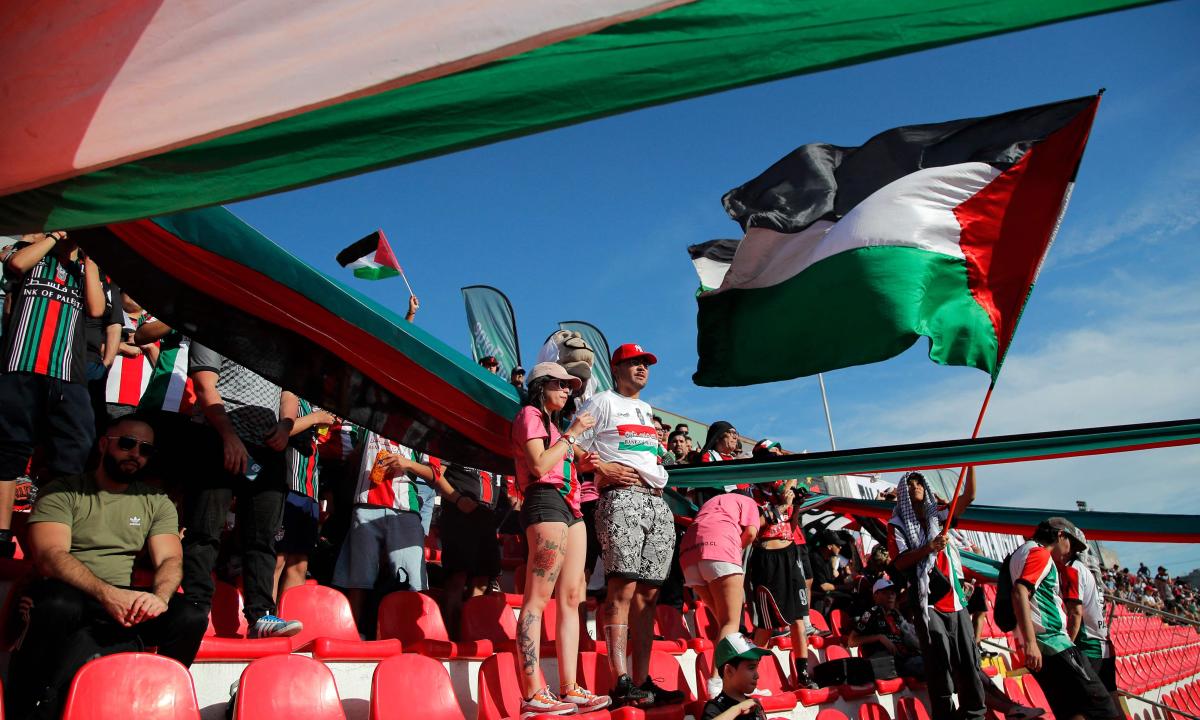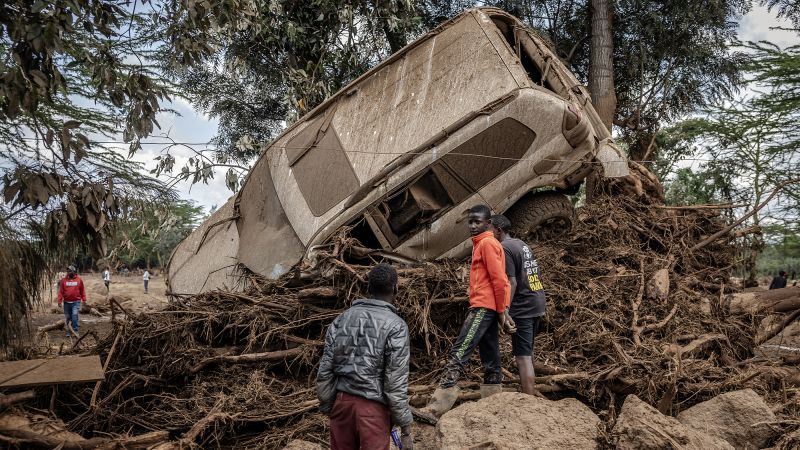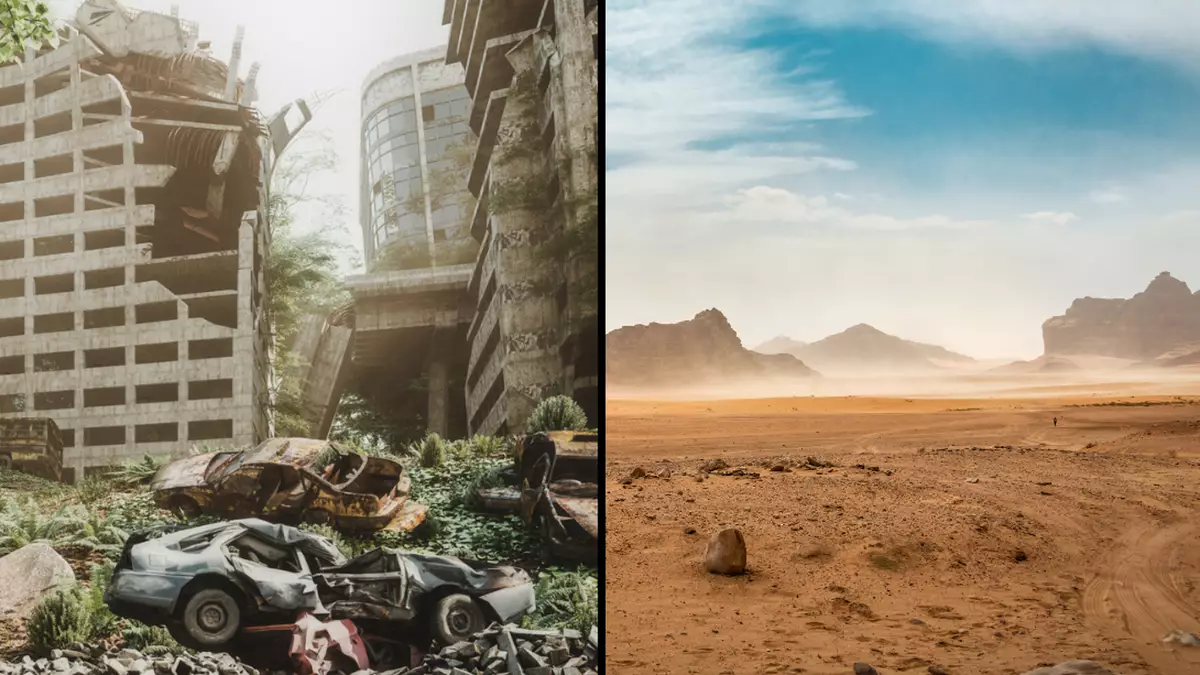Above canvas awnings along the narrow streets in Patronato, a busy commercial district in Chile’s capital, Palestinian flags hang from lampposts and frame warehouse doors.
Bakeries sell baklava, pita and falafel; and shelves are stacked with products imported from the Middle East, their ingredients hastily covered over with Spanish approximations.
Here in Santiago, 8,000 miles from Gaza, Palestine’s cause and culture burn brightly: Chile is home to the largest Palestinian diaspora outside the Middle East, numbering as many as 500,000 people.
Related: Gaza: who lives there and why it has been blockaded for so long
“I would love to say that the support is born from an innate sympathy for human suffering,” said Dalal Marzuca, 28, a third-generation Chilean Palestinian. “But I think it’s more likely that everyone here just has a friend, colleague or classmate with Palestinian heritage.”
Marzuca works at a Palestinian coffee shop in the city centre where – between brewing thick dark coffee and serving up sticky, sweet knafeh – she follows the latest news from Gaza via WhatsApp and Instagram.
“Being Chilean Palestinian is unique,” said Marzuca. “I’m not entirely one nor the other, but I know how much what happens in Gaza is affecting me.”
Earlier this month, Marzuca was one of thousands of people who marched beneath a sea of Palestinian flags towards La Moneda, the presidential palace in Santiago, as the diaspora lent its considerable voice to the global clamour for a ceasefire.
“It’s a human cause, not a national one,” said Kristal Kassis, a 39-year-old Chilean-born demonstrator whose grandparents emigrated from Bethlehem. “Look around us: lots of people who have no connection to Palestine have joined us to call for justice.”
Protesters in keffiyehs carried placards decrying the Israeli bombardment of Gaza City, and were led in chants imploring Chile to cut all ties with Israel by the throbbing beat of kettle drums.
Further ahead in the march, Mirvat Quesieh Abu-Gosh, 57, stood in front of La Moneda with Palestine’s black, white, green and red flag draped over her shoulder.
“We’re all suffering because of this, it’s a death foretold,” she said, her voice shaking. “It feels like nobody is doing anything. But Chile takes you in so well – sometimes you feel like you’re in Palestine.”
Quesieh Abu-Gosh was born in Beit Jala but her family fled the town after the six-day war in 1967. They were unable to return, and so she moved to Santiago where her mother’s family were already living, and had a daughter whose father is Chilean.
Between refugees and migrants, at least 6 million Palestinians live outside their homeland.
The most prominent diaspora beyond the Middle East is in Chile, but there are large contingents in Central America, particularly in Honduras and El Salvador.
All three countries abstained from the 1947 UN general assembly vote on the partition of Palestine, and Chile has recognised Palestine as a state since 2011.
It also has full diplomatic relations with Israel. The two embassies in Chile have no contact.
“Our relationship with the government is very good,” said Palestine’s ambassador in Santiago, Vera Baboun, whose previous post as Bethlehem’s mayor saw her visit Santiago in an effort to foster closer relations with the diaspora.
Recently, days pass slowly at the embassy, where worried faces stare anxiously at the Palestinian news channels playing in each room.
“We wanted to bring a vivid, lively relationship between Palestine and Chile,” Baboun said. “At least in Chile the president is determined to voice and defend his conception of human and international rights.”
President Gabriel Boric’s foreign ministry announced last year that it planned to open an embassy in Palestine, although it gave no timeframe for the move.
Then, this month, Boric recalled Chile’s ambassador from Tel Aviv, saying that Israel was not abiding by international law. Boric has condemned Hamas’s attacks on 7 October in which more than 1,200 people were killed, but he has also described the Israeli response, which has killed between 13,000 and 15,000 Palestinians, as “disproportionate”.
In October, his government made a $200,000 donation to a UN humanitarian fund to help those in Gaza. He also called Palestinian National Authority president, Mahmoud Abbas, to reiterate his commitment to peace and security.
The conflict in the Middle East occupies a prominent role in Chilean life and politics.
Chilean politicians regularly spar over the conflict in the Middle East, which inflames passions even beyond the diaspora and extends into student politics.
In 2016, Boric’s alma mater, the University of Chile’s law school, voted to boycott events where participants were “functionaries of the State of Israel and/or are funded by the Israeli embassy”.
The first migrants from Palestine arrived in Chile with Turkish passports in the late 19th century having left the crumbling Ottoman Empire, successfully setting up textile businesses and working in commerce.
A new wave joined them as the 20th century began, with many crossing the Atlantic Ocean from European ports to Buenos Aires – an arduous journey which could take up to three months – and continuing over the Andes into Chile by mule.
Most were Orthodox Christians from Beit Jala, Bethlehem and Beit Sahour, and by the second generation, many were already integrated into Catholic churches.
Chile’s first Arabic-language newspaper, Murshid, was founded in 1912, and 20 more soon followed in what became a cultural enclave.
“Chilean Palestinian culture is a time capsule,” explained Mauricio Amar, an academic at the University of Chile’s Eugenio Chahuán Arabic Studies Centre. “The identity exists in an in-between space, and the traditions we have are those that were passed down from the first generation that arrived in each family.”
On study visits to Bethlehem, some young Chilean Palestinians recall their Palestinian contemporaries telling them that their names were several generations out of fashion.
At their packed stadium down in La Cisterna, a southern suburb of Santiago, Club Deportivo Palestino, a football club founded more than a century ago by Palestinian migrants, play in Chile’s top division in the colours of the Palestinian flag.
A map of Palestine before the creation of Israel 75 years ago is emblazoned on the left sleeve.
“Those spaces are important for the community. They are where Chilean Palestinians meet,” said Marzuca, referring to the football club. “It’s important that people stay in touch with these roots, how ever distant they are, because we’re so far from the land our families had to leave behind.”

Abhinav Thawait is a globe-trotting correspondent with a passion for international affairs. With a background in international relations, he offers a global perspective on the most pressing issues around the world. Abhinav’s curiosity takes his to the far corners of the earth, where he seeks to share untold stories and diverse viewpoints.








